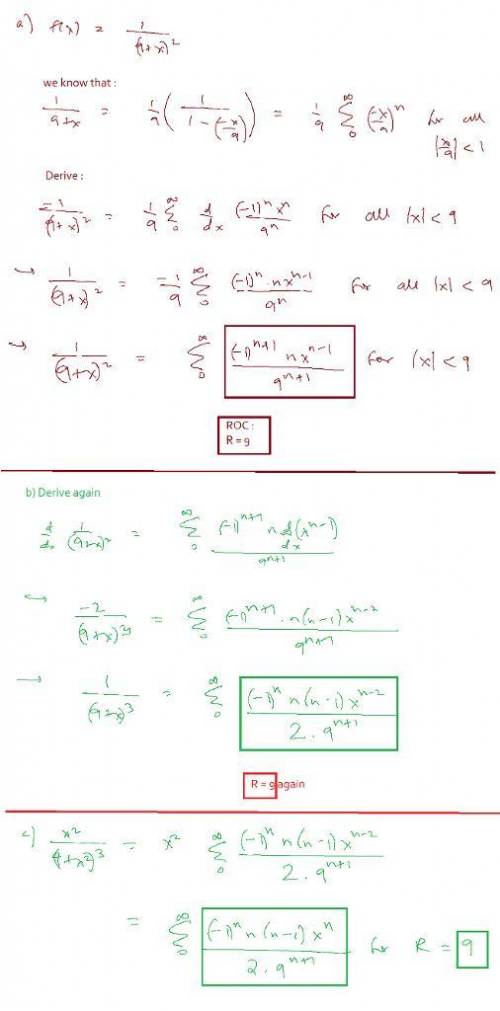
Mathematics, 05.05.2020 15:06, dondre54
(a) Use differentiation to find a power series representation for f(x) = 1 (9 + x)2 . f(x) = [infinity] n = 0 What is the radius of convergence, R? R = (b) Use part (a) to find a power series for f(x) = 1 (9 + x)3 . f(x) = [infinity] n = 0 What is the radius of convergence, R? R = (c) Use part (b) to find a power series for f(x) = x2 (9 + x)3 . f(x) = [infinity] n = 2 What is the radius of convergence, R? R =

Answers: 2
Other questions on the subject: Mathematics

Mathematics, 21.06.2019 16:00, evanwall91
If there is no real number solution to the quadratic equation x^2+2x+c=0 what is a possible value of c? 1 -2 0 3
Answers: 2

Mathematics, 21.06.2019 23:00, kayvontay4
The coordinate grid shows a pentagon. the pentagon is translated 3 units to the right and 5 units up to create a new pentagon. what is the rule for the location of the new pentagon?
Answers: 3


Mathematics, 22.06.2019 02:30, vicsmi4573
Which two angles in the figure are adjacent angles?
Answers: 1
Do you know the correct answer?
(a) Use differentiation to find a power series representation for f(x) = 1 (9 + x)2 . f(x) = [infini...
Questions in other subjects:


French, 02.04.2020 01:14


Mathematics, 02.04.2020 01:14

Mathematics, 02.04.2020 01:14


Mathematics, 02.04.2020 01:14

Mathematics, 02.04.2020 01:14

World Languages, 02.04.2020 01:14









 when n=1 k=0, and if
when n=1 k=0, and if  . Therefore we will have
. Therefore we will have 



 to the result that you found in (b)
to the result that you found in (b)
 , therefore if k=0 then n=2 and k=n-2 so we would have
, therefore if k=0 then n=2 and k=n-2 so we would have 





